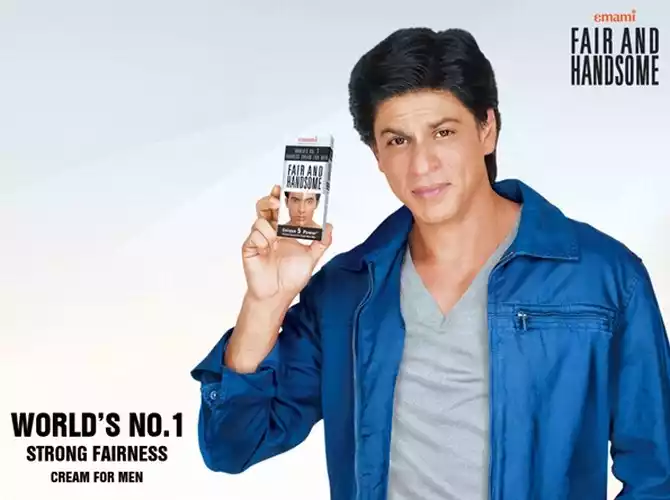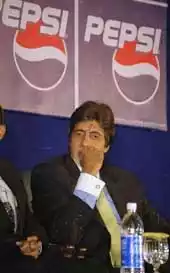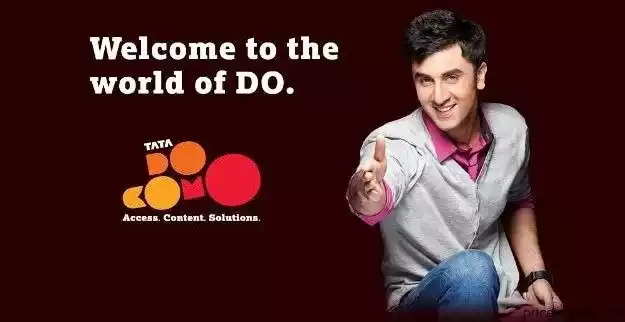Celebrity Endorsements: The Risks
The celebrity endorsement charm is undeniable. Celebrities have extensive reach and can attach immediate credibility to a brand. But there are perils in celebrity partnerships, especially if poorly conceived. Such risks lead to unsuccessful celebrity endorsements, where the campaign fails to connect with the target market or worse, harms the reputation of the brand.
One of the main causes of endorsement failures is that there is not enough congruence between the celebrity and the brand. When a celebrity endorses a product that does not feel natural or aligned with what they are known for in the public's eyes, people are quick to spot it and can even perceive the endorsement with suspicion. Also, celebrities' private lives are able to sway the public perception of the endorsed brands, and any scandal relating to the celebrity can adversely impact the brand.
Unsuccessful Celebrity Endorsements in India
India has seen its fair share of unsuccessful celebrity endorsements. Some of these failures have become cautionary tales for marketers and brand managers. Let’s explore some of the most infamous failed celebrity endorsements in India.
1. Shah Rukh Khan and Fair & Handsome
![Shah Rukh Khan and Fair & Handsome.jpg]()
One of the most controversial and unsuccessful celebrity endorsements in India involves Bollywood superstar Shah Rukh Khan and the fairness cream brand Fair & Handsome. The actor, who is famous for his global popularity and charm, came under a lot of criticism when he started promoting a fairness cream that guaranteed to whiten men's skin tone. The campaign was heavily criticized for encouraging colorism and perpetuating negative color stereotypes.
The endorsement was not only a poor fit for the actor, who had built up an inclusive and progressive image earlier, but also triggered a wider debate about whether fairness creams were ethical in India. Although Fair & Handsome generated temporary buzz, the long-term harm to its brand image became clear as public opinion turned against fairness creams. This is one of the worst celebrity endorsement failures that companies try to prevent by matching values with their endorsers.
2. Amitabh Bachchan and Pepsi
![Amitabh Bachchan and Pepsi.jpg]() Pepsi, a global beverage giant, has a long history of partnering with celebrities. However, one of its most notorious failed celebrity endorsements involved Amitabh Bachchan, one of India’s most revered actors. In 2014, Bachchan announced that he would no longer endorse Pepsi after a schoolgirl questioned why he was promoting a product considered unhealthy. The actor’s withdrawal from the campaign sent shockwaves through the industry, as it highlighted the growing concerns around endorsing products like sugary sodas, which are often criticized for their negative health impacts.
Pepsi, a global beverage giant, has a long history of partnering with celebrities. However, one of its most notorious failed celebrity endorsements involved Amitabh Bachchan, one of India’s most revered actors. In 2014, Bachchan announced that he would no longer endorse Pepsi after a schoolgirl questioned why he was promoting a product considered unhealthy. The actor’s withdrawal from the campaign sent shockwaves through the industry, as it highlighted the growing concerns around endorsing products like sugary sodas, which are often criticized for their negative health impacts.
The endorsement campaign had been running successfully until the public outcry, but Bachchan's decision to distance himself from the brand put Pepsi on the defensive. This failed celebrity endorsement in India underscored the importance of choosing celebrities who align with the ethical concerns and expectations of the audience.
3. Aamir Khan and Snapdeal
![Aamir Khan and Snapdeal.jpg]()
Bollywood star Aamir Khan's promotion of online marketplace Snapdeal became among the biggest celebrity endorsement flops in India. The mess started when Aamir Khan spoke about increasing intolerance in India, and as a result, there was a social outcry. Most felt that his remarks were against their country, and subsequently, #BoycottSnapdeal became the hashtag on social media.
While the actor had expressed his personal opinion only, his endorsement deal with Snapdeal took a toll on the brand. The online shopping platform soon dropped Khan and ended the campaign silently. This case shows how quickly an endorsement can turn sour from success as soon as a celebrity's personal opinions clash with the general opinion, leading to a poor celebrity endorsement example.
4. MS Dhoni and Amrapali
![MS Dhoni and Amrapali.jpg]()
Former Indian cricket captain MS Dhoni’s endorsement of Amrapali, a real estate developer, is another notable instance of a bad celebrity endorsement in India. Dhoni, one of the most trusted and admired sports personalities in the country, faced severe criticism when buyers of Amrapali’s residential projects accused the company of fraud and failure to deliver promised homes. As the brand ambassador, Dhoni was dragged into the controversy, with many asking him to disassociate from the company.
Eventually, Dhoni terminated his contract with Amrapali, but the damage to his image was done. This endorsement failure highlights the risks celebrities face when endorsing brands that may engage in unethical business practices or face legal trouble. It also emphasizes the importance of thorough vetting of companies before entering into endorsement deals.
5. Ranbir Kapoor and Docomo
![Ranbir Kapoor and Docomo.jpg]()
Telecom company Tata Docomo enlisted Bollywood actor Ranbir Kapoor as its brand ambassador in a bid to capture market share in India’s highly competitive telecom sector. The campaign initially gained traction due to Kapoor's popularity and youthful appeal. However, as Tata Docomo's network and service issues came to light, consumer trust in the brand eroded, and the endorsement lost its effectiveness.
This example of a failed celebrity endorsement in India demonstrates that no matter how strong the celebrity endorsement is, it cannot compensate for a subpar product or service. The failure of Docomo to meet consumer expectations resulted in a failed partnership, leaving Kapoor’s endorsement ineffective.
What Went Wrong: Common Themes in Failed Celebrity Endorsements
Analyzing these failed celebrity endorsements, several common themes emerge:
-
Lack of Authenticity: One of the most significant reasons for unsuccessful celebrity endorsements is the lack of alignment between the celebrity and the product. If the endorsement doesn’t feel authentic, consumers will be less likely to engage with the brand.
-
Controversial Statements or Actions: A celebrity’s personal actions or statements can quickly lead to public backlash and negatively impact the brand they are endorsing. The Snapdeal-Aamir Khan controversy is a prime example of this.
-
Brand Reputation: A brand’s reputation plays a crucial role in the success of an endorsement. If the company is involved in unethical practices or fails to deliver on promises, as seen in MS Dhoni’s Amrapali endorsement, the endorsement is likely to fail.
-
Poor Product Quality: As seen with Ranbir Kapoor and Tata Docomo, even the best celebrity endorsements can’t salvage a product that doesn’t meet consumer expectations.
How We Ensure Your Celebrity Endorsement Is a Success
While failed celebrity endorsements in India offer important lessons, it’s crucial to remember that with the right approach, a celebrity endorsement can significantly enhance your brand’s visibility and credibility. our celebrity endorsement services specialize in crafting successful endorsement campaigns by carefully selecting the right celebrity, ensuring alignment with your brand’s values, and managing all aspects of the endorsement process.
![Collaborate With Celebrities.png]()
![birthday occasion]() Birthday Gifts
Birthday Gifts
![anniversary occasion]() Anniversary Gifts
Anniversary Gifts
![women]() Women
Women
![men]() Men
Men
![Couples]() Couples
Couples
![Couples]() Wedding Gifts
Wedding Gifts

 Birthday Gifts
Birthday Gifts
 Women
Women
 Men
Men
 Anniversary Gifts
Anniversary Gifts
 Wedding Gifts
Wedding Gifts


 Pepsi, a global beverage giant, has a long history of partnering with celebrities. However, one of its most notorious failed celebrity endorsements involved
Pepsi, a global beverage giant, has a long history of partnering with celebrities. However, one of its most notorious failed celebrity endorsements involved 



 We now support international payments
We now support international payments
